What Happens When You Hold It in for Too Long
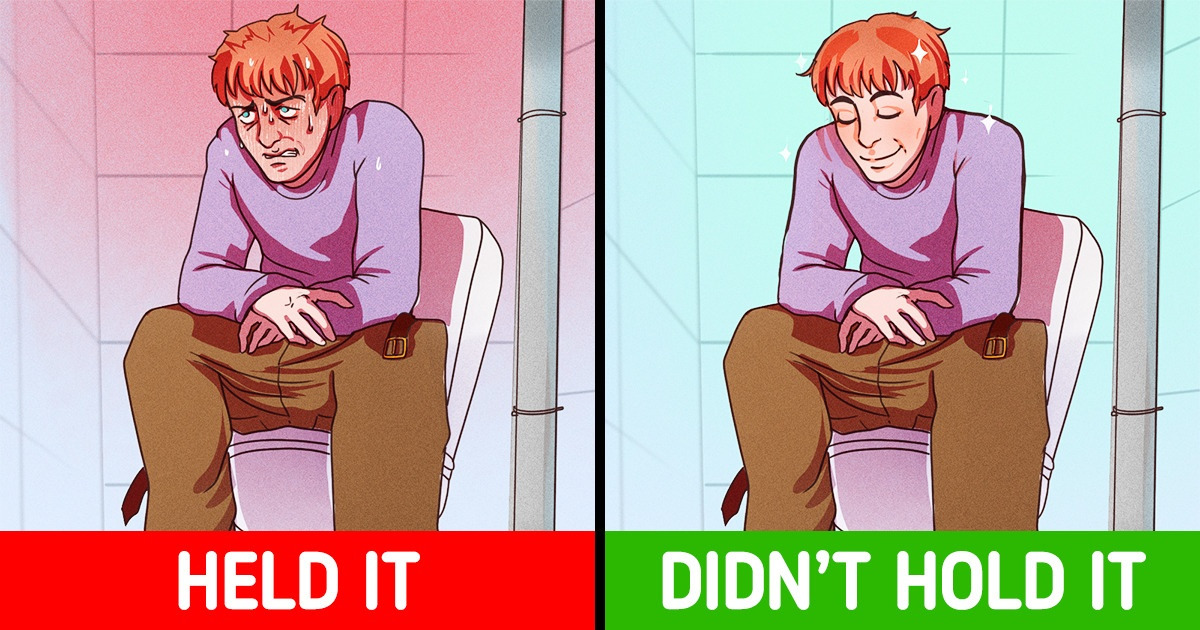
We’ve all been in situations where you really want to go to the toilet but you can’t. Some people think that holding it for too long is bad for your health. Let’s find out if that’s actually true.
With 5-Minute Crafts, you’ll find out what happens if you hold it for too long.
What normal defecation should be like
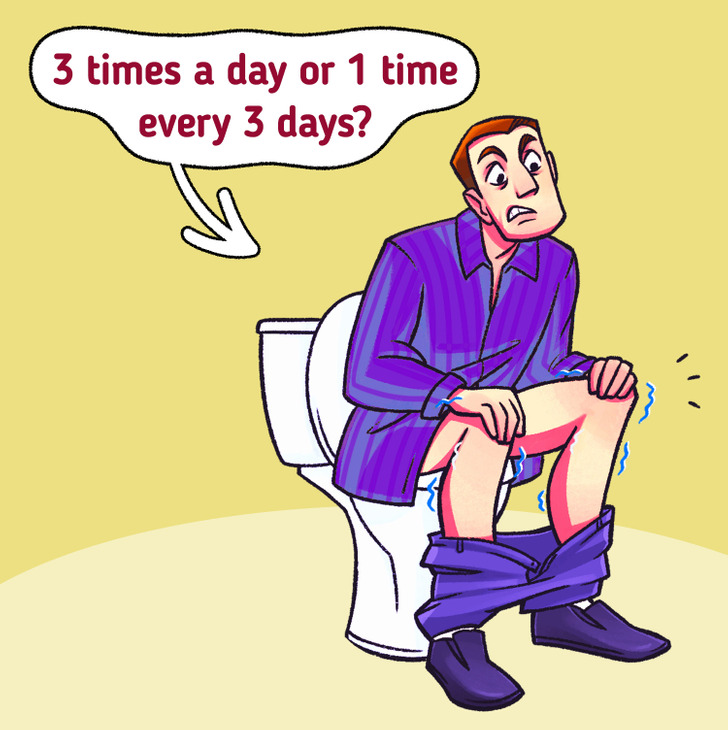
We all defecate. It’s a very important biological process that allows our body to get rid of bacteria, fiber, water, and indigestible plant matter.
All people defecate differently. Some people do it several times a day, while others only go once every several days. It’s normal to defecate anywhere from 3 times to 1 time every 3 days. If you are within this norm and feel okay, you have no problems.
Sometimes, you can’t go to the bathroom when you want to and have to hold it. Most of the time, this isn’t bad for the body. But if it becomes a habit, you might have some health issues.
What happens if you hold poo for a long time
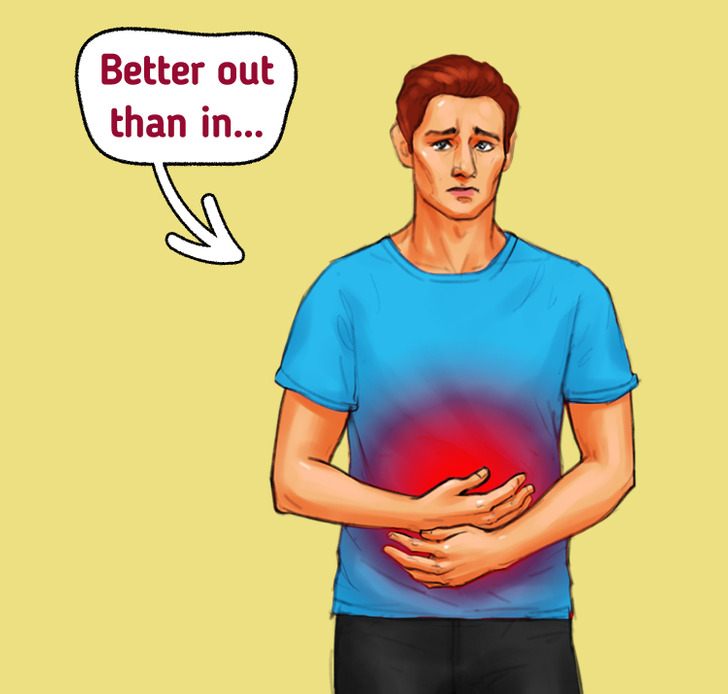
- Hard stool: The longer a stool is held in the rectum, the more water the intestines absorb. Such a stool becomes hard, which might make defecation hard.
- Fissures: A hard stool may cause fissures. They hurt and bleed and take a long time to heal.
- Loss of sensitivity: In certain cases, holding it can lead to a loss of sensitivity. Over time, the rectum muscles will stretch, which might make it hard to understand when it’s time to defecate.
- Constipation: A loss of sensitivity, in turn, may lead to constipation, which will require a doctor’s attention. But experts say that this doesn’t happen just because a healthy adult person holds it in regularly.
How often we should pee
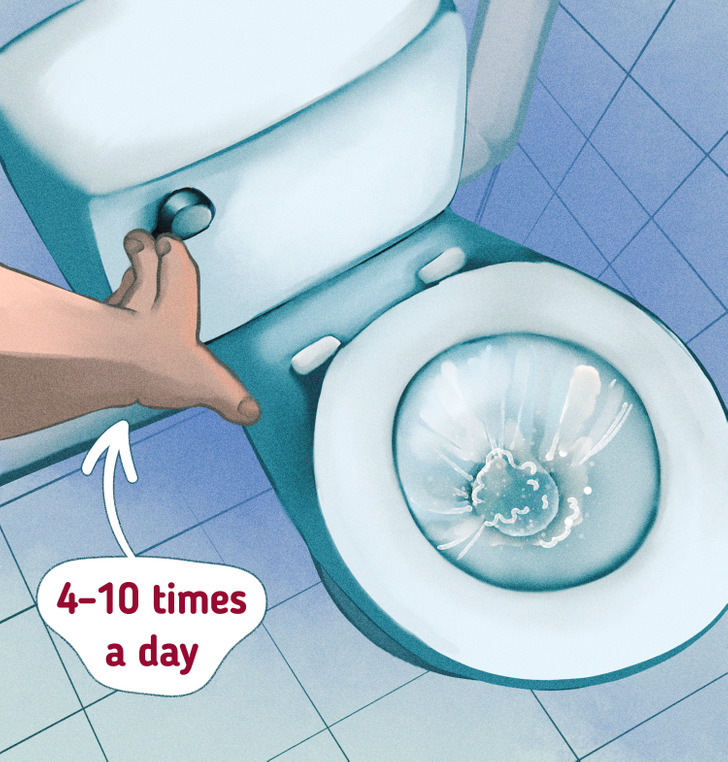
You’ve probably wondered how often we should urinate. There’s no definite answer to this question. Most people pee around 6-7 times a day. It’s normal to pee from 4 to 10 times every 24 hours if such frequency doesn’t affect your life quality.
These factors determine how many times you pee:
- Age: Older people urinate more often.
- Bladder size
- Certain conditions, such as diabetes and urinary tract infections
- The number of liquids you drink
- Types of liquids you drink, like caffeine, can increase urine production.
- Medications and additives, like diuretics, may lead to more frequent urination.
A bladder of an adult can take around 2 glasses of liquid. When it’s full, we want to urinate. But sometimes, you might not be able to pee right away. Experts warn that holding in urine regularly may have negative consequences for your health.
What happens if you hold urine regularly
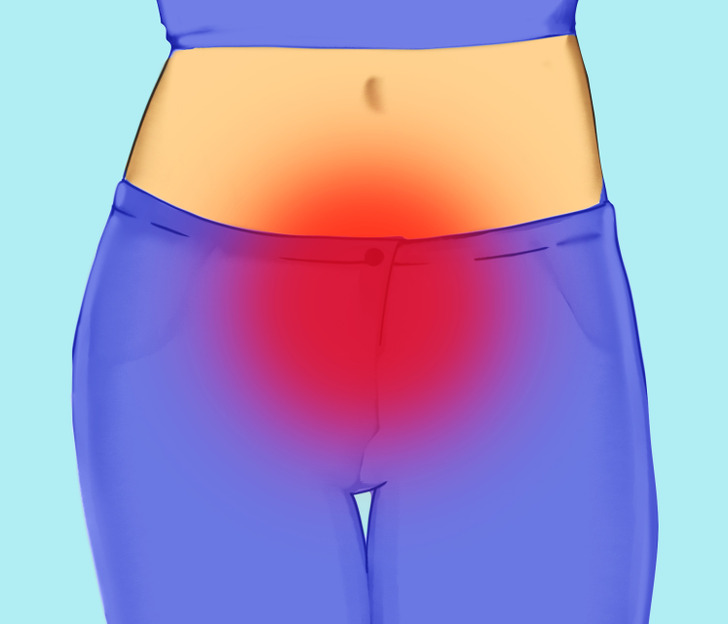
- Pain and discomfort: If you resist the urge to urinate regularly, you might feel discomfort and even pain in the bladder or kidneys.
- Painful urination: If you hold urine, actual urination might be quite painful.
- Spasms: If you don’t urinate for too long, the muscles might remain partially clenched, even after peeing. It may lead to pelvic cramps.
- Urinary tract infection: Holding in urine may lead to bacteria reproduction. And this leads to urinary tract infections.
- Stretching the bladder: This is dangerous because the bladder won’t be able to contract and release urine normally.
- Damage to pelvic floor muscles: Holding pee for too long may lead to damaging the pelvic floor muscles and cause urinary incontinence.
- Kidney stones: In some people, holding pee may lead to kidney stones. That’s because urine can often contain minerals, such as uric acid and calcium oxalate.